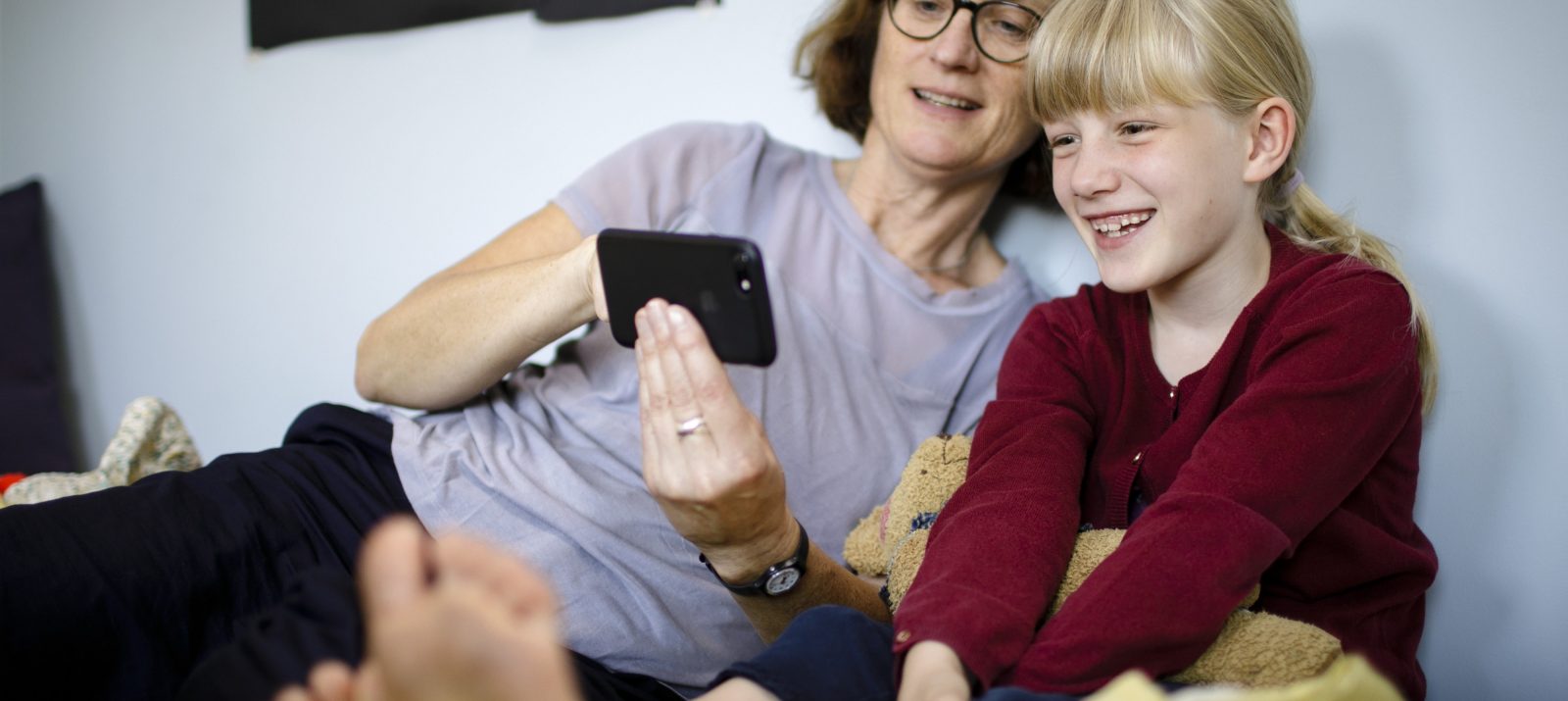
You are sitting with your children having dinner together and talking, when suddenly your cell phone rings. How do you behave? Do you let family time get in the way?
Such situations probably exist in every family. Actually, it was agreed that the smartphone has no place during the meal. But if it rings mom’s bell, she may think it’s important and answer it anyway. But the rules should apply to everyone, right?
Be aware that parents and other adults have an important guidance function for children. Children learn from you how the world works and how to behave in certain situations. Your behavior therefore has a major impact on how your child uses media themselves. By setting an example of what a conscious approach to media can look like, you support your child in learning to use the smartphone and other media independently, sensibly and responsibly.
As young people get older, they also orient themselves more and more to their peers in their media use, and your influence as parents diminishes.
Perhaps your family also sometimes gets into arguments about media use, for example, when your child reaches for the smartphone out of boredom. They would find it better if it read a book or played with friends instead. Just think about what you do yourself in your free time. Do you watch series in the media library or sometimes just play games on your cell phone? It’s not just about what media you use, but how often, in what situations, and what content.
You might consider what that looks like for each family member. How much time does each person spend with media and with other things? Is the ratio is okay for you. Agree with your family on rules about media time and cell phone-free times. For this purpose, you can, for example, jointly create a media usage agreement. Or use an app that lets you keep track of time on your screen. Often there is also the option to track screen time or set up limits in the mobile settings.
It is advisable to consciously incorporate screen-free times and activities into everyday family life in order to be able to process the media content and to allow the body to exercise.
Always keep in touch with each other – even when it comes to media. By taking an interest in your child’s media consumption, you build trust. Then your child will also take you seriously when you express concerns about certain apps or platforms, or come to you when they encounter unpleasant things about their media use. Younger children in particular should not be left alone with media. Talk about what they saw.
Also, reflect on your own behavior on social media and hold yourself to the advice you give your child – such as not posting photos without the consent of the people in them.
Everyday life is often stressful and it is sometimes difficult to keep agreements. One is exposed to the pressure to be constantly available. Talk about this with your child as well. Be honest with yourself and show understanding for your child. It can also be helpful to look together at which agreements are going well and which are going less well!